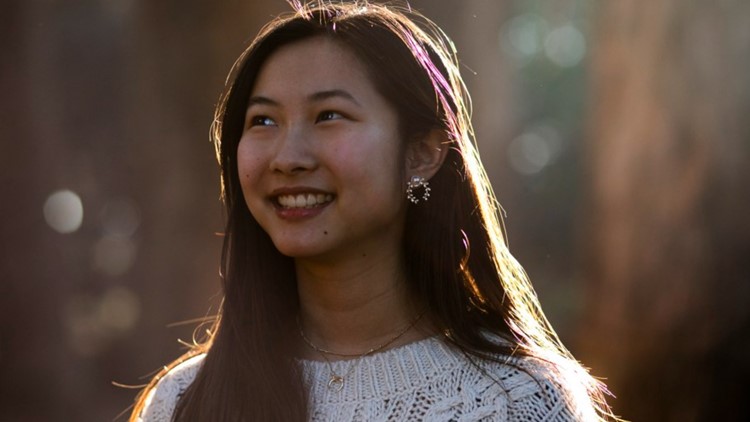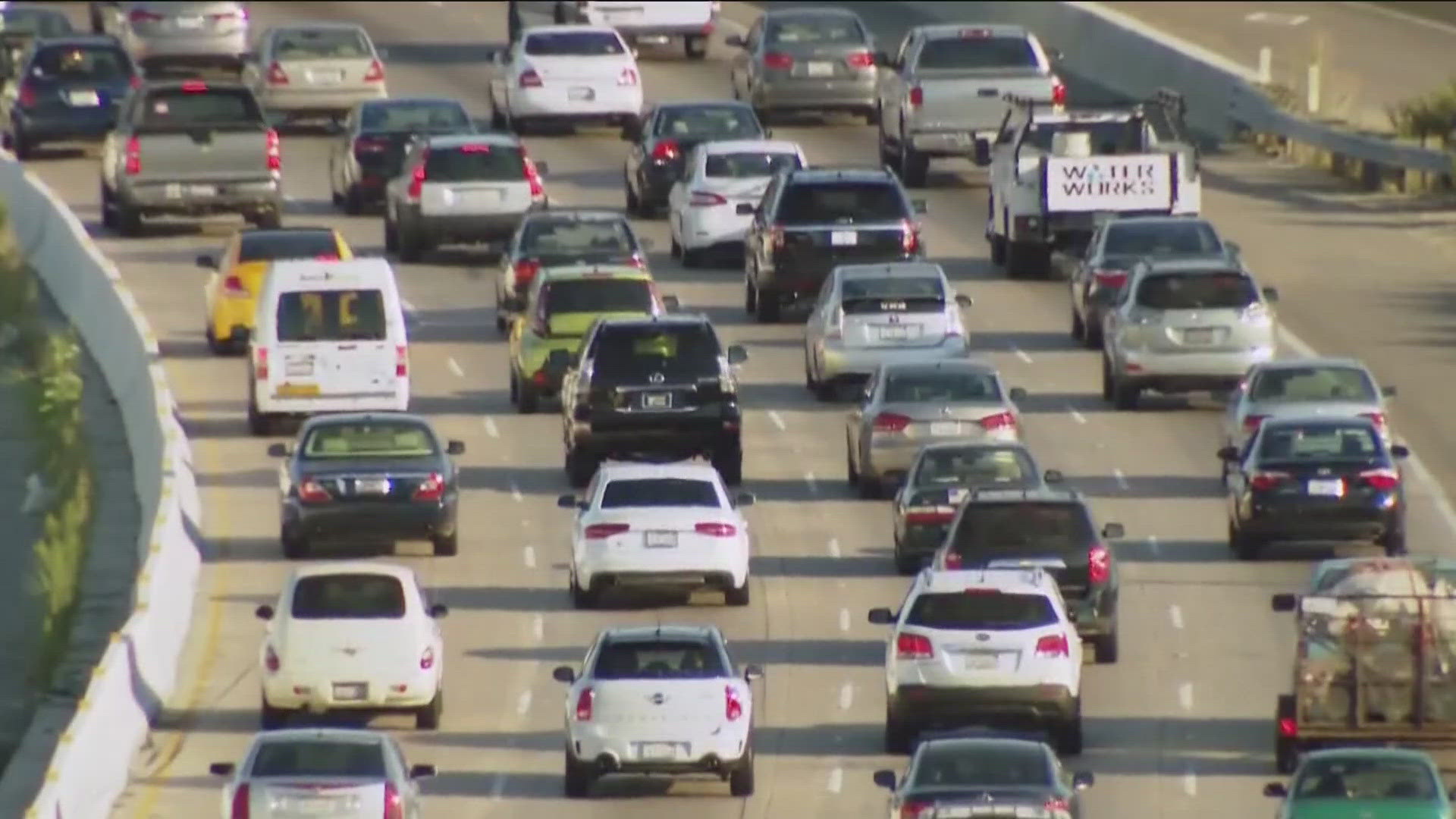CALIFORNIA, USA — International students forced to return to their home countries. Low-income students losing the jobs that kept them afloat. Professors and students alike pushed off campus and adjusting to virtual learning, sometimes without access to the technology they needed.
The coronavirus pandemic disrupted nearly every aspect of California higher education as we knew it. In the economy, it also marked the beginning of what some observers have deemed the “Great Pause,” a time for individuals and businesses alike to reevaluate their situations and their next steps. A year later, college seniors in the Class of 2021 will graduate into one of the most volatile job markets in recent history.
For this year’s graduating seniors, who have been managing pandemic hardships for months, the stakes are high as they make their future plans. Success for San Diego State student Sarah Norris means landing a job in human resources — despite the felony on her record. For Sophia Rivera, a student at Cal Poly San Luis Obispo, it means overcoming their parents’ concerns that they’re leaving behind the relative security of a career in animal science to hone their craft as a jewelry maker.
Having a strong first employment experience can accelerate graduates’ careers and give them better earning prospects in the long run, said Lande Ajose, Gov. Gavin Newsom’s senior policy advisor for higher education. But the pandemic has swollen the ranks of the jobless, particularly among young people: The national unemployment rate for 16- to 24-year-olds in July, when many students are searching for summer or post-graduate jobs, was 18.5%, double what it had been for the three years prior. In California, nearly a quarter of young adults ages 16 to 19 were unemployed as of November.
The long-term effects of graduating into a recession persist beyond just the economic. A pair of social scientists at Northwestern and UCLA, Hannes Schwandt and Till von Wachter, found that recession graduates had higher death rates when they reached middle age, stemming from unhealthy behaviors like smoking, drinking, and poor eating. They were less likely to be married and more likely to be childless.
“Call it the peril of an unlucky draw,” they wrote. “Our research offers evidence that the transitory economic shock of a recession experienced during a formative period may put some young adults on a riskier, economically less successful life trajectory.”
Nearly 40% of college students screened positive for generalized anxiety disorder in a survey conducted at nine public research universities over the spring and summer. More than a third reported symptoms consistent with clinical depression. The numbers were even higher among low-income students, with more than half screening positive for anxiety.
Besides filling out job applications, seniors like Zi Liang Lim — an international student from Malaysia — are debating whether to enroll in graduate school that could also take place online. Others, like Mills College senior Noreen Swan, are taking the country’s polarized political climate into account as they decide where to settle post-graduation.
For last year’s graduating seniors, the pandemic was a shocking jolt, but “watching the Class of 2021, it’s more like this slow smolder — maybe it’s not going to get better. Or maybe it will,” said Marcie Kirk Holland, who works with job-seeking students as executive director of the UC Davis Internship and Career Center. “They’re going through so many more ups and downs than the Class of 2020.”
Career counselors say the news isn’t all bad — despite the very real post-graduation opportunities lost to the pandemic, some companies are still hiring, and even increasing their recruitment due to the ease of remote job fairs. The National Association of Colleges and Employers reports that seniors face a “more positive than expected” outlook compared to that of the last major recession, with nearly 10% more employers planning to maintain or increase college hires in 2021 than there were in 2009.
Amanda Lee, a senior studying economics at UC Berkeley, was “in shock” when she landed a consulting job more than a semester before graduating. Studying from her family’s home in San Ramon, Lee says she’s grateful for the job offer, but still felt the sting of missing out on a year of university life.
“I felt like there was a sense of loss where I was giving up my college experience and not being able to have a senior year,” she said.
Follow along with the CalMatters College Journalism Network as we spend time with six seniors at California colleges over the next five months, chronicling their ups and downs as they navigate their last year of undergraduate education and make precarious plans for the future.

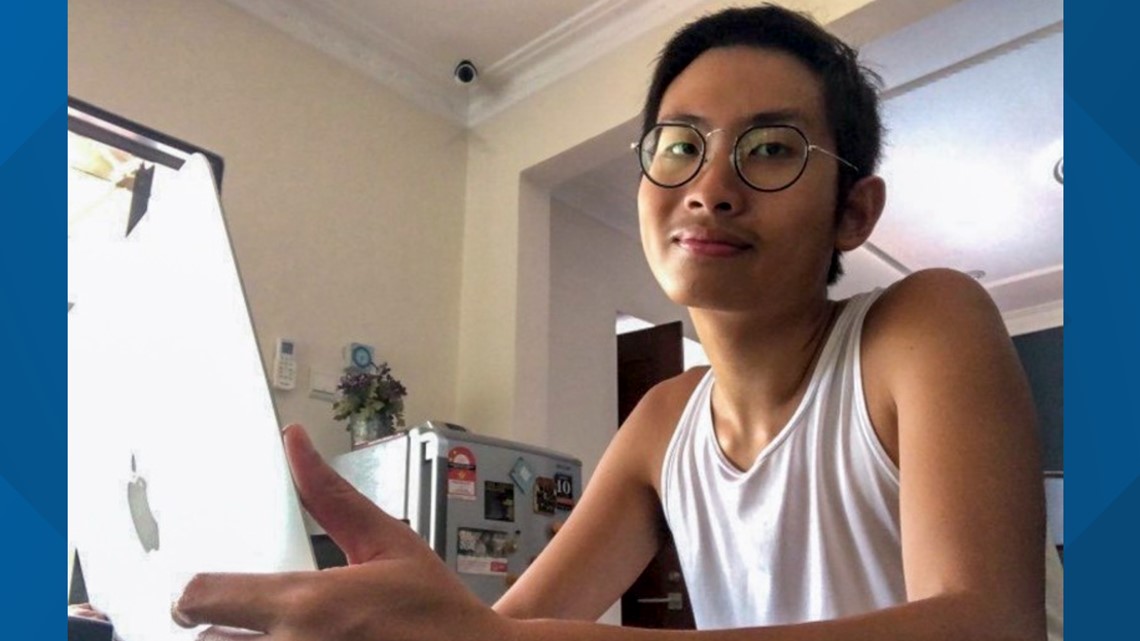
Zi Liang Lim, Fresno State
Zi Liang Lim wants to attend graduate school in the United States next year, but the choice isn’t completely up to him.
An international student at Cal State Fresno who has spent the past nine months in his home country of Malaysia, Lim is set on studying in person, which means relying on U.S. policymakers to gain control of the raging COVID-19 pandemic.
When he arrived at Fresno State under a partnership between the university and Malaysia’s International College Subang, Lim was working to complete his bachelor’s degree in biology, a field he fell in love with in high school. He planned to pursue a career in medicine, but after working with a professor on a research project, he became intrigued with bioinformatics, a discipline that uses computers to analyze biological data such as DNA sequences.
Lim said he sees the future of biology heading toward information technology and away from experimental laboratories.
“I love molecular biology, and I also feel that the computer science aspect will be really important in the future,” he said.
The pandemic has given Lim more time to reflect on his career path, he said, but it has also thrown up formidable obstacles. In March, Cal State Fresno announced that virtual instruction would continue for the rest of the spring semester.
Lim had just a few days to pack up most of his belongings from his dorm room, take a Greyhound bus to Los Angeles and get on a flight to Kuala Lumpur. “It was a little bit of a disaster,” he said.
Back home, he faced a 15-hour time difference between Malaysia and California. He convinced professors to let him take exams at different times and watch recorded lectures, and coordinated study meetups with friends in the late evening Pacific Time.
When Cal State announced the fall 2020 semester would also be virtual, Lim decided to take a leave of absence to avoid more Zoom classes. Instead, he crammed for the GRE, the entrance exam required by most graduate schools. Tops on his list of schools: University of South Florida, San Diego State University, Virginia Commonwealth University and the University of Texas at El Paso.
To combat the spread of COVID-19, the Malaysian government imposed strict limits on movement. In Kuala Lumpur, only a few bars and restaurants were open, and residents weren’t allowed to leave the city. After restrictions loosened Dec. 20, the country reported record numbers of daily coronavirus cases, prompting the government to declare a 14-day lockdown. So Lim has spent most of his time at home with his younger brother, mother and father. Still, he was keeping tabs on one thing — the U.S. presidential election.
When all major national media outlets projected Joe Biden as the president-elect, defeating Donald Trump, Lim was ecstatic. Trump “doesn’t even think the pandemic is serious,” he said. “Biden, he has a plan.”
With a new president in office, Lim says he feels like his chances of returning to the U.S. will be much higher — especially if classes are in person. “I really want to have a proper academic year,” he said.
—Zaeem Shaikh

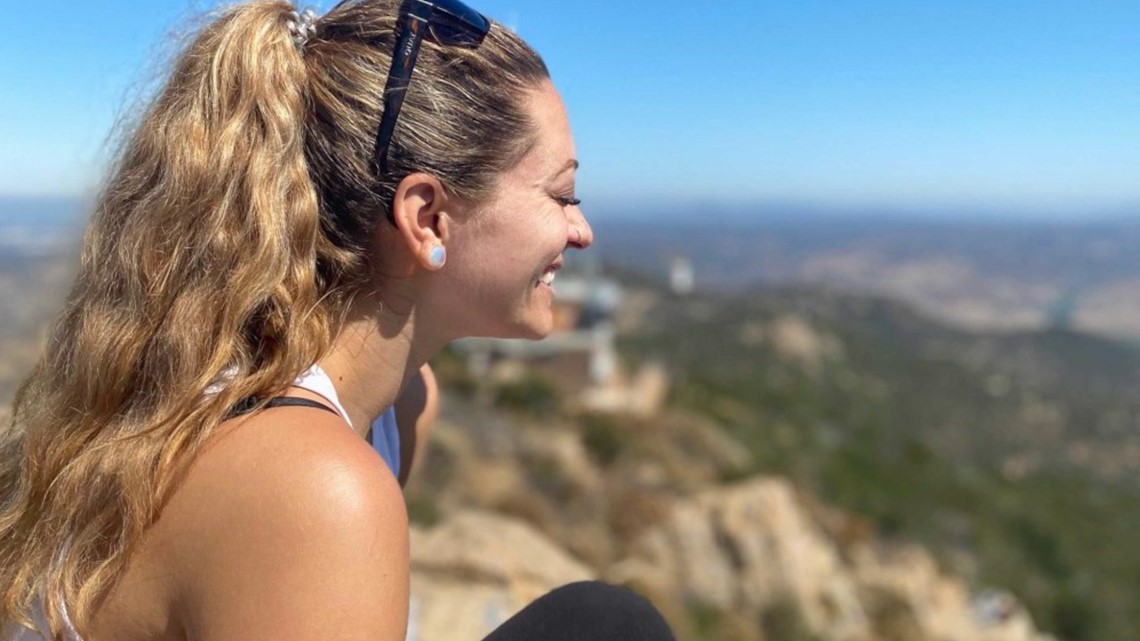
Sarah Norris, San Diego State
The coronavirus pandemic has imposed constraints on most Californians’ lives, but San Diego State University senior Sarah Norris feels freer than she has in years.
She’s quarantined in Rancho Peñasquitos, a northern suburb of San Diego, with her parents and her sister — an hour and a half down the road from the California Institute for Women, where Norris began serving an eight-year prison sentence for residential burglary at age 20.
Before prison, Norris was living a life she now barely recognizes. A manipulative relationship, drugs and a couple of impulsive decisions led to her arrest, she says. While incarcerated, she sobered up and became determined to get a college degree. She earned some credits through a state-run program, was accepted to SDSU while still in prison, and completed her sentence in July, in the middle of a statewide stay-at-home order.
Life on the outside has been busy. Norris is studying sociology with a minor in psychology — she earned straight As this fall — and waitressing at two restaurants. Bubbly and optimistic, she gets excited when she talks about doing the normal things she missed while incarcerated — like visiting the La Jolla Swing, a popular, Instagrammable spot overlooking the ocean.
“I got to go with my boyfriend and that made me really, really happy,” she said.
Norris wants to work in human resources — because, she says, she loves paperwork. “I love dealing with people and I’m really organized,” she said. “I feel like it’s something I could do for, like, 20 years and not hate my job.”
Being involved in hiring, Norris said, would also allow her to take a chance on people who need help — the way she hopes someone, post-graduation, will take a chance on her.
From the outside, the outlook seems grim. College graduates are already facing all kinds of challenges posed by remote learning and graduation into a very different economy than even one year ago. Norris is dealing with all of that, adjustment back into life at home and a felony on her record, which will make job hunting even harder.
She’s one class away from graduating, but recently found out that class won’t be offered in the spring, setting her back another semester. The delay disappointed her at first, but she quickly found an upside.
“I’m kind of happy because I can have more time to look into grad schools,” she said. She wants to leave California, to see more of the world. It’s not her first time figuring out something major on the fly.
“There have been so many times where things in life are out of my control,” she said. “I’m almost 30. I expected to have a whole life, my own life, you know? And I’m just starting it now.”
—Emily Forschen

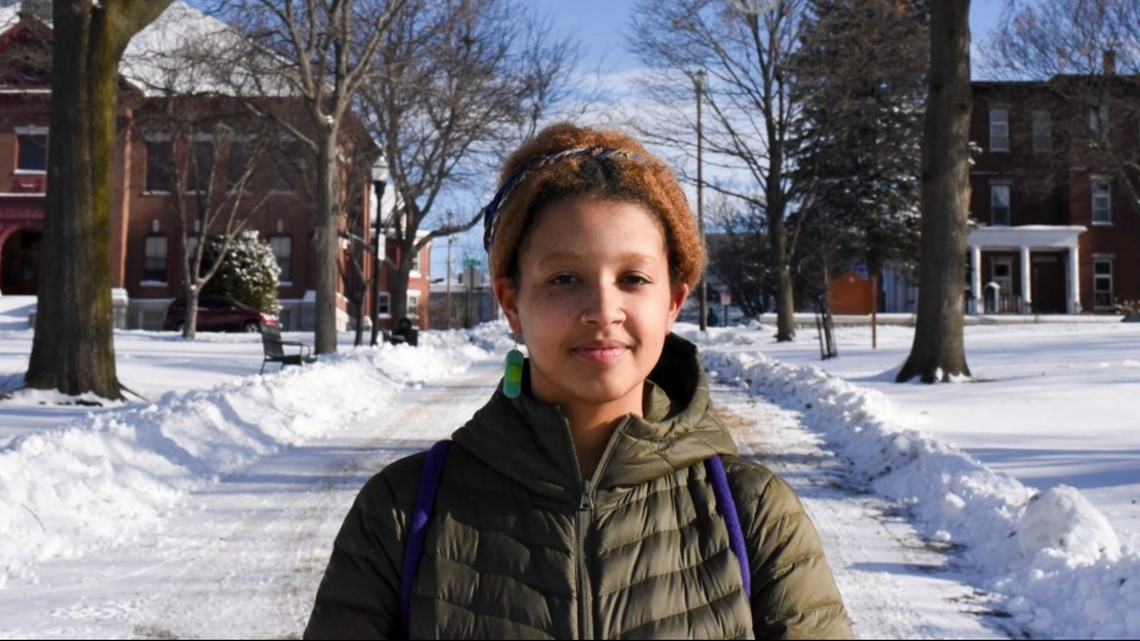
Noreen Swan, Mills College
Noreen Swan peered out their bedroom window as a pro-Trump parade began to circle their apartment building in Lewiston, Maine. The previously peaceful Sunday afternoon in Swan’s largely Somali neighborhood was now disrupted by the constant blaring of car horns and chants from people holding signs that read “QAnon.”
It was a far cry from Swan’s previous home at Mills College in Oakland, where they’d visit the campus hangout, the Tea Shop, and relax on the lawn with a diverse group of friends. As the risk of exposure to COVID-19 in California rose this spring, Swan and their boyfriend fled the Mills dorms and crossed the country to live near Swan’s mother. Then the culture shock set in.
Lewiston is home to Bates College, which like Mills is small, private and focuses on the liberal arts. But unlike Oakland, the college town is 87 percent white and in a swing state.
“It’s so divided and polarized and really intense here,” said Swan, who is Black and non-binary. “I hate having to go to the grocery store, I hate having to go basically anywhere because … there’s just a lot of, like, rageful conservatives who are just looking for a fight.”
The political climate hasn’t been the only challenge. Swan had to adjust to being away from their friends and community, with most of their interactions being virtual. Just before classes started in the fall, Swan’s computer died and they couldn’t immediately afford to buy a new one. For part of the semester, they were unable to attend classes or complete their coursework. Eventually they purchased a new computer and, with the help of understanding professors, caught up.
What’s kept Swan going, they say, is their desire to follow in their father’s footsteps and become a teacher. A child development major, they interned before the pandemic at the Oakland Museum of California and Habitot, a children’s discovery museum in Berkeley, helping improve exhibits aimed at children. Now, they help create curriculum for the Children’s School, a private preschool and grade school located on the Mills campus. If it weren’t for COVID-19, they’d be spending the day in a classroom surrounded by preschoolers, pitching in with teaching, mealtimes, and clean-up. Instead, they’re observing via Zoom from 3,000 miles away, navigating technological hiccups as other teachers convey the lessons they developed.
“I definitely wish I could have had that hands-on experience this semester,” Swan said. Still, they said it’s been rewarding to see how children experience their curriculum, and the strong relationships that teachers can build with families. If anything, it’s strengthened Swan’s resolve to get a teaching job in the Bay Area after graduation.
And recently, things have been looking up: Swan’s new computer is working well. They’ve found peace in Maine’s tree-filled, snowy winter landscape and the smell of wood-burning stoves, all of which remind them of Massachusetts, where they grew up. Graduation, they remind themself, is only a few months away.
“My mind has been like, this is really painful and really hard,” Swan said. “But I am so close, I can almost see it.”
—Angel Fabre

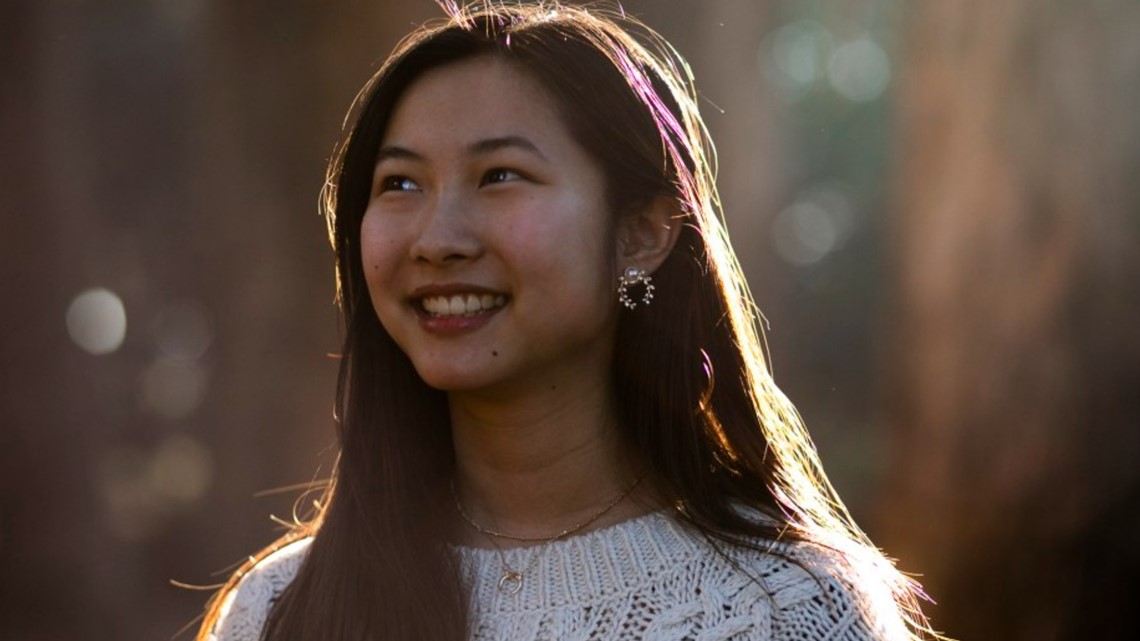
Amanda Lee, University of California Berkeley
UC Berkeley economics major Amanda Lee was perched on the sofa next to her father watching a video about making dumplings when she received a text from one of her friends, asking if she had heard from a consulting firm they both hoped to intern for.
She checked her email and opened up the message. Her heart sank.
The first line of the email said the company canceled the internship. But the bad news turned to good, as the email proceeded to offer her a full-time position.
“I didn’t even know what to make of it,” Lee said. “I was just in shock.”
She and her father rejoiced for about five minutes and then got back to watching the video. Receiving major news in such a mundane way pretty much captures how surreal this school year has been for Lee. Once shelter-in-place orders went into effect in the Bay Area last spring, Lee celebrated one last college dinner at Boiling Point with friends, packed up her apartment and returned to her parents’ home in San Ramon. She said goodbye to in-person classes and her on-campus social life.
“I felt like there was a sense of loss where I was giving up my college experience and not being able to have a senior year,” Lee said. “Nobody knew the pandemic would be going on for this long.”
Now, she still doesn’t know whether her job will be in person, or if she’ll need to move to San Francisco. The uncertainty of the pandemic makes the typical post-graduation worries hit harder: How will she find an apartment? What will it be like on her own?
Still, she remains grateful to have a job secured during such economically trying times.
“I’m very lucky that I’m in a position to say that I am satisfied with how things have turned out,” Lee said. “I know that’s not the case for so many people.”
—Mallika Seshadri

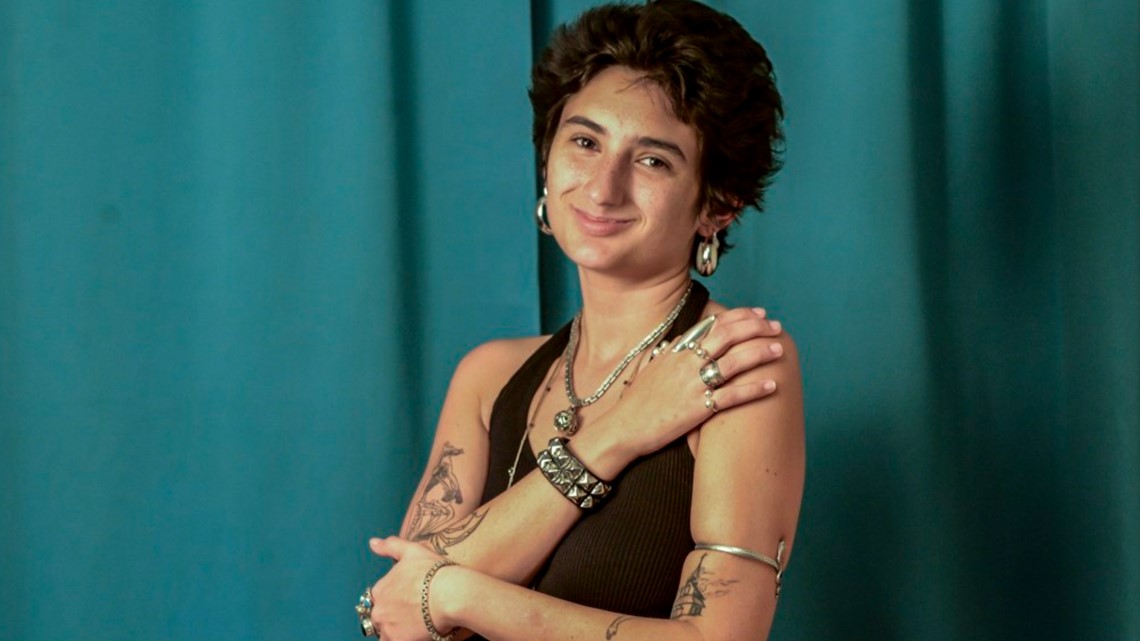
Sophia Rivera, Cal Poly San Luis Obispo
Sophia Rivera thought they’d leave Cal Poly, San Luis Obispo with a degree in animal science. Then they took a metalsmithing class at the campus craft center, fell in love with jewelry making, and found themselves at the crossroads of passion and practicality. On the one hand was the field their parents had paid for them to study. On the other was the craft that fascinated them and kept them busy during the long days of the pandemic.
When COVID-19 restrictions closed the campus, Rivera purchased power tools from Home Depot to make jewelry from their garage. Their summer internship at the Charles Paddock Zoo in Atascadero was cancelled due to the pandemic, so they went to work managing a jewelry store in downtown San Luis Obispo, Super Silver, and launched their own line, Piezas Únicas.
“I take my inspiration from high end fashion so I can make sustainable versions of the crazy jewelry that I see,” Rivera said. “Every little last thing I do in my studio is personalized to me.”
Rivera sells their work through Piezas Únicas’ craft fairs and also has their own small display at the jewelry store. Post-graduation, they plan to focus on their jewelry business. But they sometimes feel conflicted over their new path.
“My amazing parents put me through this great university to get my degree and my education, and to use that degree to be academic,” Rivera said.
Instead, they’ll either be attending trade school for jewelry making in Los Angeles or moving to Orange County to open a new Super Silver store. Rivera said they have considered working at a zoo part-time to make a living, but do not plan to turn that job into a career. “That’s been something super hard for me to wrap my head around – despite me spending all this time here to get my degree, I’m probably not going to use it in the long run.”
At first, Rivera said, their parents did not support their artistic career. But recently, they’ve come around. “I think that they genuinely can really see that this is something I’m really passionate about.”
Wherever they land after graduation, Rivera said, they hope to find space for self-reflection and exploring their gender identity. “I’m non-binary; I’m in the process of figuring out my gender expression,” Rivera said. “I hope that (post-graduation) I’m a little bit more sure of myself, in the sense of who I am inside in the molds that I fit.”
—Olivia Galván

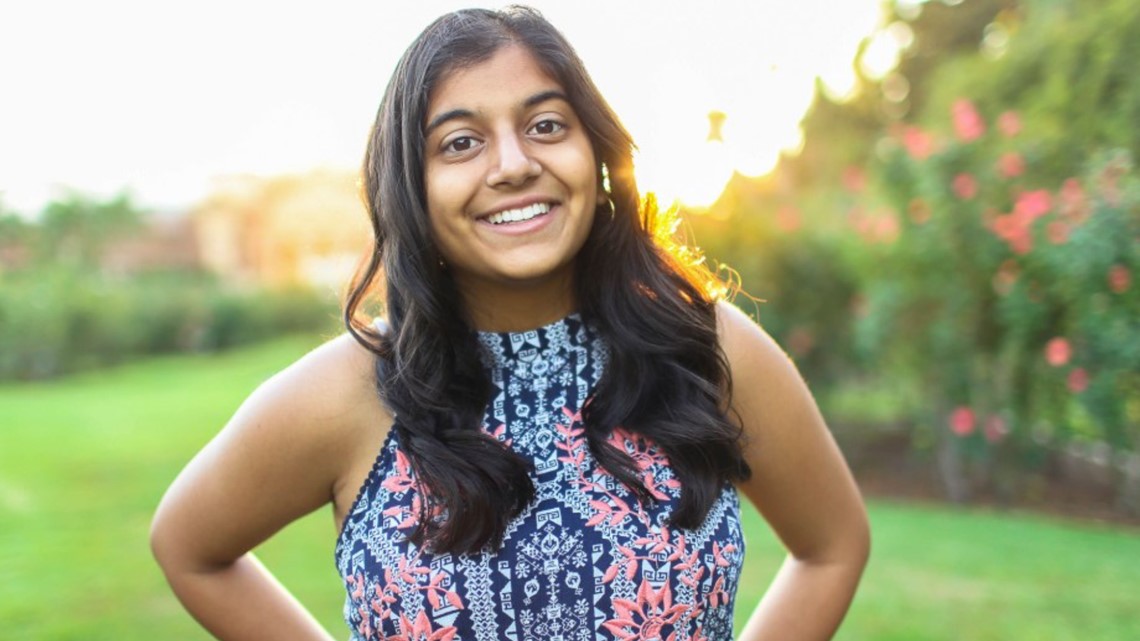
Maya Vyas, University of Southern California
As an Indian American growing up in Tipp City, Ohio, a small town of just over 10,000 on the outskirts of Dayton, Maya Vyas never really saw anyone who looked like her.
An avid theater geek, she wanted to be an actress growing up, so at age 13, she auditioned for the local production of Peter Pan. She really wanted to be Wendy, but of course, she says, they cast her as Tiger Lily.
It’s something so stupid and funny that nowadays, it gives her a good giggle whenever she thinks about it. But that combined with later experiences, she said, made her realize that there weren’t many roles for a 4’10” Indian girl from Ohio.
“I didn’t want to play Tiger Lily,” Vyas said. “I wanted to play the parts that I wanted to play.”
So Vyas shifted her focus from the stage to the page, eventually landing at the USC School of Cinematic Arts where she is a senior studying writing for screen and television.
“I get really excited when I read a script that I really like or find a voice that’s really cool and that I’ve never heard before,” Vyas said. “That’s really made me not only love writing, but also just finding other people’s stories and empowering other people’s voices. Especially when it’s about Indian-American characters.”
During the pandemic, Vyas said she’s continued to write and learn, but feels so disconnected from the USC community that it’s as if she’s no longer a student. Every day drags on in the same way: wake up, log in to her Zoom classes, spend hours online, lather, rinse, repeat.
Though she’s made it to one of the most reputable schools in her field, she’s still sometimes plagued by doubt. She worries that, as a screenwriting major and an Indian-American woman, she’s never going to break into a writer’s room, that she’ll misstep rising up the ranks, or jump the gun on a job offer that she’ll turn out to hate.
She’s kept the creative juices flowing by interning at Disney Plus and preparing her portfolio to pitch to industry executives, with the hope of getting representation and landing writing gigs after graduation. She knows the pandemic is reducing opportunities in her field. But in a workforce where women of color make up only 19% of screenwriters for television and just 4% of screenwriters for film, Vyas says, she always knew it would be an uphill climb. And she’s determined to make a place for herself in the industry.
“After I started writing, I’m so much more secure in myself and like, my looks, and I really have grown so much into myself. (But) there’s a small part of me that’s always literally like ‘I’m small, I’m inferior,’ ” Vyas said. “That’s, like, a good thing in some ways, that I need to overcome that. That’s what I’m trying to work towards.”
—Ryan Loyola
Fabre and Shao are fellows with the CalMatters College Journalism Network, a collaboration between CalMatters and student journalists from across California. Forschen, Galván, Loyola, Seshadri and Shaikh are contributors to the network. This story and other higher education coverage are supported by the College Futures Foundation.

